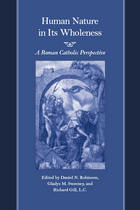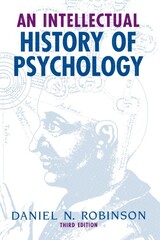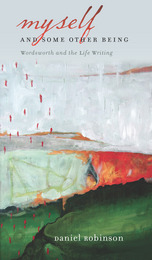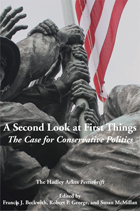

An Intellectual History of Psychology, already a classic in its field, is now available in a concise new third edition. It presents psychological ideas as part of a greater web of thinking throughout history about the essentials of human nature, interwoven with ideas from philosophy, science, religion, art, literature, and politics.
Daniel N. Robinson demonstrates that from the dawn of rigorous and self-critical inquiry in ancient Greece, reflections about human nature have been inextricably linked to the cultures from which they arose, and each definable historical age has added its own character and tone to this long tradition. An Intellectual History of Psychology not only explores the most significant ideas about human nature from ancient to modern times, but also examines the broader social and scientific contexts in which these concepts were articulated and defended. Robinson treats each epoch, whether ancient Greece or Renaissance Florence or Enlightenment France, in its own terms, revealing the problems that dominated the age and engaged the energies of leading thinkers.
Robinson also explores the abiding tension between humanistic and scientific perspectives, assessing the most convincing positions on each side of the debate. Invaluable as a text for students and as a stimulating and insightful overview for scholars and practicing psychologists, this volume can be read either as a history of psychology in both its philosophical and aspiring scientific periods or as a concise history of Western philosophy’s concepts of human nature.

Myself and Some Other Being is the story of Wordsworth becoming Wordsworth by writing the fragments and drafts of what would eventually become The Prelude, an autobiographical epic poem addressed to Coleridge that he hid from the public and was only published after his death in 1850. Feeling pressured to write the greatest epic poem of all time, a task set for him by Coleridge, Wordsworth feared that he was not up to the challenge and instead looked inside himself for memories and materials that he might make into poetry using the power of his imagination. What he found there was another Wordsworth—not exactly the memory of his younger self but rather “some other being” that he could adapt for an innovative kind of life-writing that he hoped would justify his writing life. By writing about himself and that other being, Wordsworth created an innovative autobiographical epic of becoming that is the masterpiece he believed he had failed to write.
In focusing on this young, ambitious, yet insecure Wordsworth struggling to find his place among other writers, Robinson ably demonstrates how The Prelude may serve as a provocative, instructive, and inspirational rumination on the writing of one’s own life. Concentrating on the process of Wordsworth’s endless revisions, the real literary business of creativity, Robinson puts Wordsworth forward as a model and inspiration for the next generation of writers.


How does the law regard and define mental incompetence, when faced with the problem of meting out justice? To what extent has the law relied on extra-legal authorities—be they religious or scientific—to frame its own categories of mental incompetence and madness? Wild Beasts and Idle Humours takes us on an illuminating journey through the changing historical landscape of human nature and offers an unprecedented look at the legal conceptions of insanity from the pre-classical Greek world to the present. Although actual trial records are either totally lacking or incomplete until the eighteenth century, there are other sources from which the insanity defenses can be constructed.
In this book Daniel N. Robinson, a distinguished historian of psychology, pores over centuries of written law, statements by legal commentators, summaries of crimes, and punishments, to glean from these sources an understanding of epochal views of responsibility and competence. From the Greek phrenesis to the Roman notions of furiosus and non compos mentis, from the seventeenth-century witch trials to today’s interpretation of mens rea, Robinson takes us through history and provides the intricate story of how the insanity defense has been construed as a meeting point of the law and those professions that chart human behavior and conduct: namely religion, medicine, and psychology. The result is a rare historical account of “insanity” within Western civilization.
Wild Beasts and Idle Humours will be essential reading for anyone interested in the evolution of thinking not merely about legal insanity but about such core concepts as responsibility, fitness for the rule of law, competence to enter into contracts and covenants, the role of punishments, and the place of experts within the overall juridical context.
READERS
Browse our collection.
PUBLISHERS
See BiblioVault's publisher services.
STUDENT SERVICES
Files for college accessibility offices.
UChicago Accessibility Resources
home | accessibility | search | about | contact us
BiblioVault ® 2001 - 2024
The University of Chicago Press









